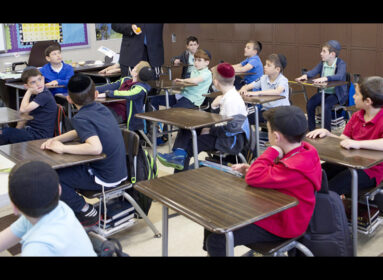By the Jewish Institute for National Security Affairs
Secretary of State Clinton spoke of Lebanon from Bosnia without apparent irony.
“The United States supports the integrity and sovereignty of Lebanon. We reject any efforts to destabilize or inflame tensions within Lebanon,” she said, according to the BBC. “We would hope that no visitor would do anything or say anything that would give cause to greater tension or instability in that country.” “We” who supported the devolution of Yugoslavia into its ethnic parts and now support the independence of Kosovo on the grounds that it is (primarily) Muslim and therefore cannot be expected to be part of Serbia, which is (primarily) Orthodox Christian.
The Obama administration wants to restore $100 million in military aid to Lebanon’s army that Congress suspended over concerns it could be used to target Israel. A senior U.S. official said a review concluded that resuming the aid was in the interest of U.S. security and Middle East stability. And Lebanese unity as well, we assume.
Mahmoud Ahmadinejad also wants a unified Lebanon and he appears close to having one on his terms. The most striking part of his visit there was not the usual, but nonetheless disconcerting, claim that, “Grounds are being prepared for the Zionist regime to go to hell” but that his war cry came:
After he shook hands with Lebanon’s Sunni Prime Minister Saad Hariri, who is under enormous pressure to pull out of the UN tribunal investigating his father’s murder, mainly because the tribunal is focused on Hezbollah and Syria.
After he stood with Lebanon’s Christian President Michael Suleiman and said, “We seek a unified, modern Lebanon, and we stand by the Lebanese government and people.”
After tens of thousands of Lebanese turned out to greet Ahmadinejad’s motorcade, cheering enthusiastically about the billions of dollars Iran has spent in the south and calling him, “our president.” Shades of Austria circa 1938.
Lebanon was a battleground over the future of the Middle East. Multi-ethnic, multi-confessional, multi-partied and, until Hezbollah showed up, tolerant – Lebanon was easy to shake up and easy to ruin. It would inevitably be reunified under the banner with the most money, the most guns and the most ruthless ideology. And so it appears to have been unified under Hezbollah control with Iranian money and Syrian military support. The Christian and Sunni communities have bowed literally as well as figuratively.
The United States failed to support democratic politician Saad Hariri. We made overtures to Syria while Damascus was threatening Beirut; we acquiesced to Hezbollah shooting its way into the Lebanese government; we ignored the Lebanese decision to permit Hezbollah to maintain its militia in defiance of UN Resolution 1701; and barely protested the sharpshooter murder of an Israeli colonel at the hands of a Lebanese Army soldier. When we forgot who killed 241 Marines and 67 French soldiers, democratic forces inside Lebanon had to know that we wouldn’t help them.
The collapse is important to Israel because it changes the enemy. For decades, Israel tried not to involve the Lebanese government or the civilian population in the wars it was forced to fight in the South, whether against the PLO or against Hezbollah. Next time, it will have to take account of the fact that the government of Lebanon is an active party to the conflict.
The only plus would be if the new Iranian-Syrian-Lebanese government alliance compels the United States to acknowledge that Lebanon’s problem, not just Israel’s problem, but our problem as well.
For years, American military sources reported that Syria hosted Hezbollah operatives who then entered Iraq. This week, a usually reliable source reported an increased Hezbollah presence in Iraq on behalf of Iran and Syria, and also that the Iranians are paying the Taliban a bounty of $1,000 for every American soldier they kill in Afghanistan.
The battle for Lebanon is over and the good guys didn’t win. Now the regional battle against Iran and its allies takes center stage. The question is whether the United States is ready to recognize the enemy.
JINSA is the Jewish Institute for National Security Affairs.







 Southern New England Jewish Ledger
Southern New England Jewish Ledger













